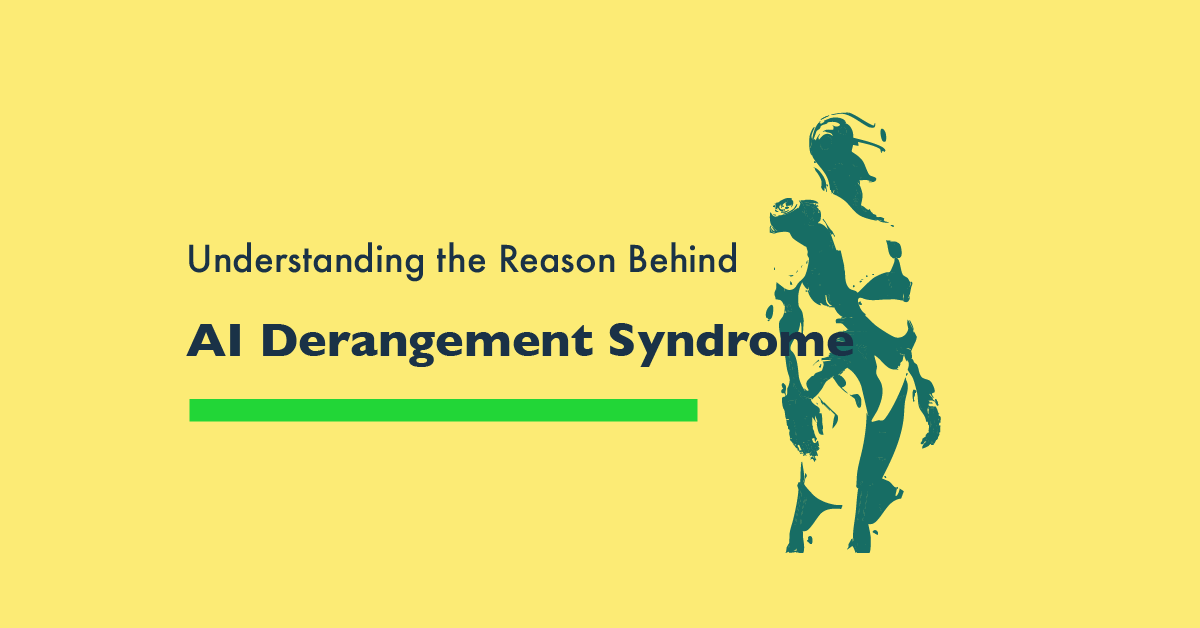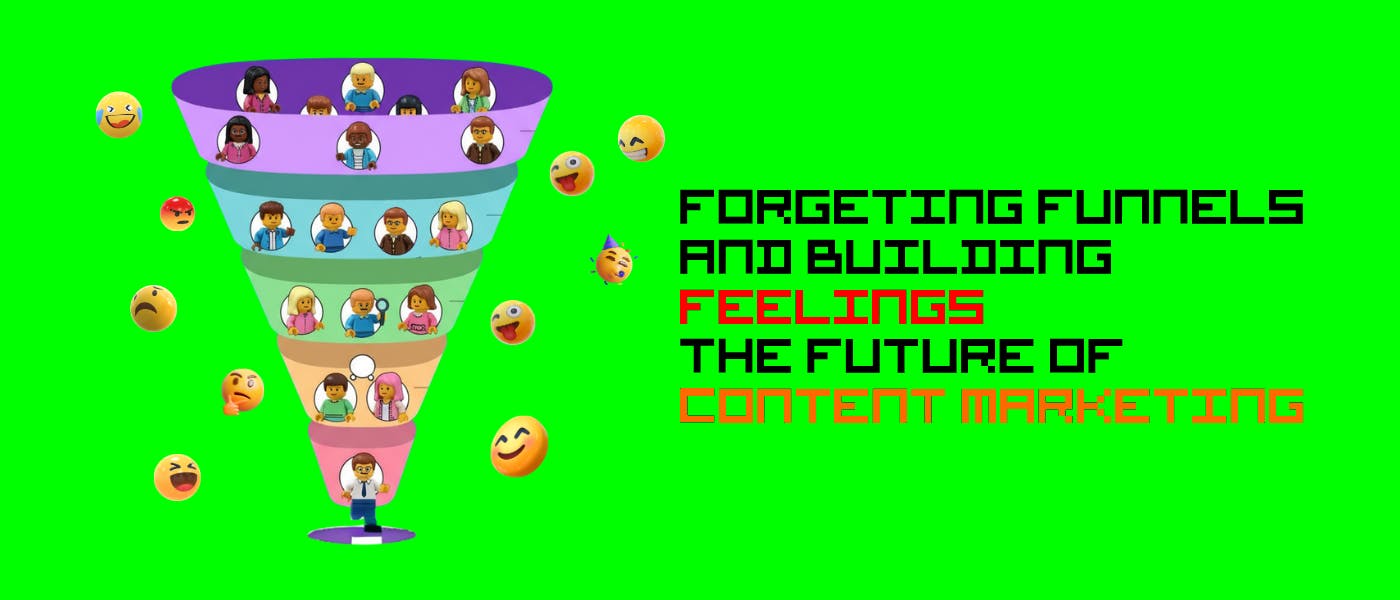Every corner of the internet has something to say about AI. Some think AI is the best thing since the printing press; others think it will be the death of humanity.
For me, the truth is somewhere in between.
Although I see how AI can turn robots into killing machines, or how a lot of jobs will be wiped out in the coming years, I also see the good it could do in the world.
Yes, some level of skepticism is warranted when dealing with a technology that could become our overlord, like Skynet. Yes, we need to hedge against posers using technology to deceive people.
But at the same time, the absolute disdain I’ve seen towards AI is slowly reaching a point of concern. You see this derangement in the 1001 posts about the “em dash” on LinkedIn by people who have never picked up a book since middle school. It’s the constant debate about AI art not being real art.
In case you’re wondering where this anger is coming from, let me tell you about AI derangement syndrome.
What is AI derangement syndrome?
AI derangement syndrome is a condition in which an individual is so worried about the unfair application of artificial intelligence that they’d go to extra lengths to discredit it.
That extra mile leads to a dark chasm of denial, where every bright idea has to be viewed through a microscope of skepticism.
A common manifestation of AI derangement syndrome is in online forums. Ideas expressed eloquently come under instant suspicion by faceless and nameless characters.
Under every video, you’ll see a comment like “This looks like AI”.
In academia, professors are in a heightened state of paranoia. Any properly written essay is under threat of getting flagged for plagiarism.
The creative arts are experiencing an existential crisis due to mistrust and cynicism surrounding modern AI solutions like Sora and Veo 3.
Is there a case for AI derangement?
Don’t get me wrong, I understand why people are worried about AI ruining the integrity of human endeavor and creativity.
Nobody wants to find out that the video they like is AI-generated—or that the beautiful piece of writing they love was a ChatGPT output.
It feels wrong. It feels like you’ve been conned.
This sentiment extends to AI-written text.
During a recent Twitter discussion, Paul Graham refused to acknowledge that humans could use such words as “delve” naturally.
He shared a probability graph as proof that AI is more likely to use “delve” than humans.
I understand Graham’s point: verbosity and the use of non-natural language are indicators of AI-created text.
Ignoring these signs will encourage people to con you with low-effort content and sales pitches, especially for investors.
If you found out that Stephen King generated his best books using AI prompts, it’d probably diminish the value of the final product.
This skepticism is an excellent guardrail for protecting the integrity of art and human creation by filtering out con artists and posers looking to make a quick buck.
However, I think Paul Graham’s staunch resistance to seeing why people from former British colonies could use a flowery vocabulary is a problem.
If the people in the upper echelons of tech are this cynical about language, then human creativity and communication are in deep trouble.
Potential impacts of AI derangement syndrome
Aggressively fighting AI content will drive you into a state of paranoia. You’ll second-guess every half-decent idea that makes it to your screen.
You’ll become obsessive and elitist about language. If someone on the internet doesn’t write using simple words, then their genius must be fueled by artificial intelligence.
And this leads to the destruction of language. With Hemingway’s blunt, direct writing style becoming the new canon, descriptive writers like Virginia Woolf will become outdated.
The Hemingway style takes time to master, but making it the standard will kill written communication.
What does that mean for English learners raised on classic literature and proper grammar?
All ESL (English as a second language) people would have to simplify their writing. This sounds like a good idea on the surface, but is a nightmare in practice.
Being deranged about AI also opens the door to fake detection experts, who’d always justify their hourly pay by pointing out phantom AI-generated content.
But it’s not all dire. AI derangement can also improve how people communicate.
In most countries, ‘corporatespeak’ will become taboo. Managers and founders will simplify communication, which I think will help cut through jargon-filled word salads.
Government and legal institutions will make legal verbiage accessible to ordinary people. Academic institutions will also need to adjust the language to meet the needs of modern audiences.
How to avoid AI derangement syndrome
Take everything with a pinch of salt, but don’t give in to cynical AI derangement syndrome.
Accept that people communicate differently
Don’t shun formulaic writing with words like “this sounds like ChatGPT”. Don’t refer to the “em dash” as “ChatGPT hyphen”.
ChatGPT doesn’t speak. ChatGPT doesn’t have any original ideas.
Remember that before ChatGPT, humans were
ChatGPT output comes from the entire database of human knowledge connected to the internet. So, ChatGPT sounds like humans, not the other way around.
Schools need to encourage simple communication
Teachers need to deal with the Frankenstein monster they created. Growing up, teachers graded essays by the number of “big” words you used.
“Conflagration” ranked higher than “fire”. “Inflammation” scored higher than “swelling”.
Judge the work by its merit, not the language
The best scientific discoveries were translated from other languages to highfalutin English jargon, and it worked for everyone. So, instead of focusing on the language, judge the validity of the content.
Accept that not everyone can express ideas in simple English
From my experience working in Eastern Europe, most companies pay for rewriting and translation services because they don’t trust their English grammar. Some use ChatGPT to bridge this gap.
Should we be worried about AI?
Artificial intelligence might hammer the death nail on some aspects of human life, but before joining the all-out crusade against this technology, try to understand how it helps others.
Don’t pay attention to industry experts rallying against AI. Once the tech becomes unbeatable, they’d be the first to hop on the bandwagon.
We’ve already seen startups springing up around AI content humanization with tools like Undetectable AI leading the charge.
No matter what you think about AI in writing and other human endeavors, the genie has left the bottle. Adapt or die.










